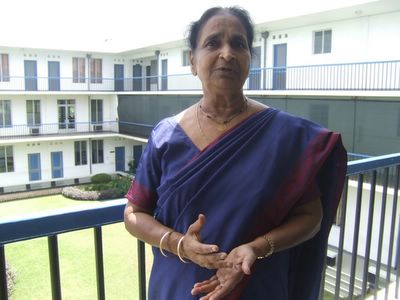Left Behind, Left Out
The Impact on Children and Families of Mothers Migrating for Work Abroad is a research study that recognizes the potential impact on children of the absence of around 600,000 Sri Lankan women abroad, a majority of them married with children. The study investigates the phenomenon of large scale female migration and its implications for children's right to a secure family environment, to a quality education, to sound development and right to contact with mothers.
Children and families left behind by migrant women are "Left Out" by an entire system that has yet to adequately and fully recognize and appreciate the considerable contribution to national income made by these women. Structures and mechanisms to verse the emotional, psychological, and social impact on children and families of the long-term absence of the maternal figure are not in place, and when they are present, they are extremely weak, as amply brought out in the research findings. Of particular note here is the clear negative impact that migration of women has on the education of children and the greater potential for neglect
The study was conducted by using a random sample of 1,200 households of mothers who had migrated to overseas for employment and had been absent from their families for over six months at the time of the study in the two districts with the highest incidences of female migration- Colombo (Colombo and Hanwella Divisional Secretariat Divisions), and Kurunegala (Kurunegala and Ridigama Divisional Secretariat Divisions). The representative study sample comprised 1.5% of the total number of female migrants with children in the two districts.
In addition to the household sample, the study included a sample survey of 200 children from each of the two districts (total of 400) representing the three main age groups (below 5 years, 6-14 years, and 15-17 years). The study also included 200 families in the Colombo district where mothers were working in Sri Lanka (100), and mothers were not working (100), both groups being in the same socio-economic background as that of migrant mothers.
A special feature of the study was the participation of children as researchers, some of them with mothers abroad.
The Impact on Children and Families of Mothers Migrating for Work Abroad research findings were launched on October 12 th 2006 at the Bandaranaike Memorial International Conference Hall by Save the Children in Sri Lanka. Some participant's views are compiled below:




